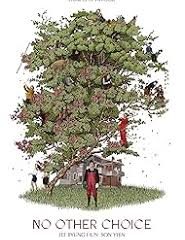The Legacy of Christopher Columbus: Exploration and Controversy

Introduction
Christopher Columbus, an Italian explorer, is renowned for his voyages across the Atlantic Ocean that led to the widespread awareness of the Americas in the late 15th century. His expeditions, sponsored by Spain, are deemed significant in the annals of history as they initiated a period of European exploration and colonisation in the New World. However, Columbus’s legacy is also mired in controversy due to the impact of his voyages on indigenous populations. Understanding both sides of Columbus’s story is crucial as it highlights the complexities of historical narratives that shape our current perspectives.
The Voyages of Columbus
Columbus’s first voyage in 1492, with three ships—Nina, Pinta, and Santa Maria—ultimately resulted in his landing in the Bahamas. His exploration continued over several subsequent voyages, during which he claimed territories for Spain. The voyages initiated European interest in the Americas, leading to extensive colonisation and ultimately altering the course of history.
Despite his navigational success, Columbus’s actions brought severe consequences for the native populations he encountered. The introduction of European diseases, warfare, and the establishment of the transatlantic slave trade led to catastrophic impacts on indigenous communities.
Controversy and Reassessment
In recent decades, a reassessment of Columbus’s impact has gained momentum. While some celebrate him as a daring navigator and key figure in the Age of Exploration, others highlight the brutality of the age of colonisation he helped ignite. Many indigenous groups and their advocates advocate for a critical view of Columbus, urging observance of Indigenous Peoples’ Day instead of Columbus Day in various regions.
Debates surrounding Columbus’s legacy have led to the removal of statues and the renaming of public spaces, reflecting a growing movement to honour the voices and experiences of those historically marginalised. This reflects a broader societal shift towards inclusivity and awareness of historical injustices.
Conclusion
Christopher Columbus remains a polarising figure in history, representing both the spirit of exploration and the harsh realities of colonisation. His expeditions undeniably changed the world, opening the doors to new cultures and interactions, yet they also brought suffering and exploitation that cannot be overlooked. As historical narratives evolve, it is essential for readers to engage critically with figures like Columbus, recognising the complexities of their legacies while promoting a more inclusive recounting of history. The ongoing discussions surrounding Columbus serve as a reminder of the importance of understanding multiple perspectives in shaping our collective memory.









